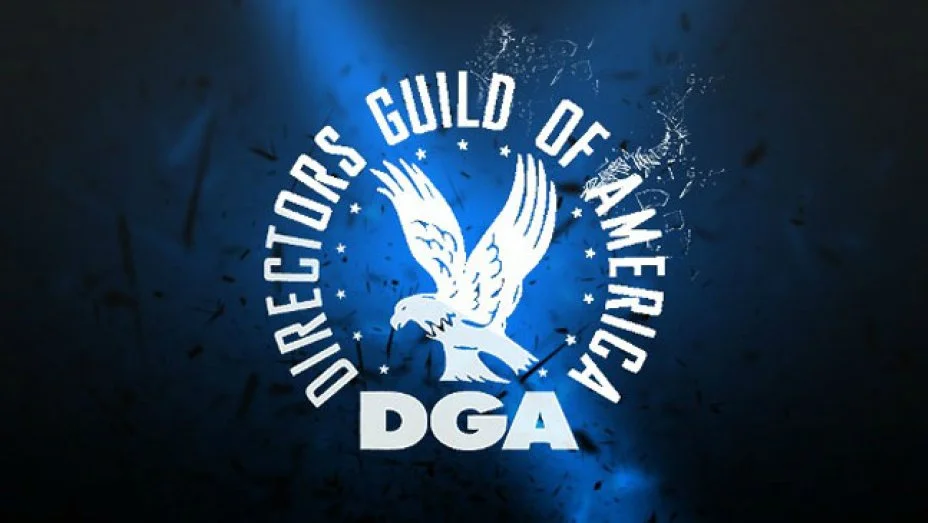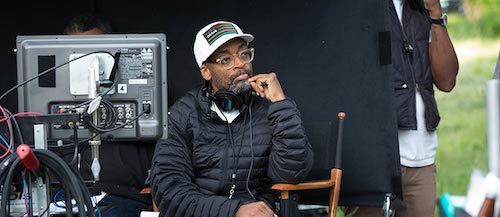The Directors Guild of America Nominees: The Usual
Well, the nominees for this year’s Directors Guild Awards are out, and they are literally what you would have expected. I would just have you guess them and be correct, but we need to have an article here. For the feature category, we have Bradley Cooper being recognized for his debut (A Star is Born), Adam McKay succeeding with his second film within his renaissance (Vice), Peter Farrelly after abandoning his previous life altogether (Green Book), Spike Lee after his comeback (BlacKkKlansman), and Alfonso Cuarón for just being his usual self (Roma). What you’re looking at here are possibly who will be nominated for Best Director at the Academy Awards, except there are some notable names missing. Yorgos Lanthimos could have been given some love for his most mainstream (but still bizarre) work The Favourite, which still had a strong focus on creating an absurd depiction of the aristocracy and royal families of yesteryear. There’s also Barry Jenkins’ humble-yet-powerful If Beale Street Could Talk that is absent here; it’s too bad, because it is one of the great visual poems of 2018.
Spike Lee, one of the nominees of the Directors Guild Awards
We can name drop plenty of directors that are absent here, but it’s interesting why these five made the cut. Bradley Cooper is hardly green when it comes to the results of his first work (which is a very pleasant surprise), and I wouldn’t say A Star is Born is safe. If anything, it’s actually a little creative with how it applied the same tale’s narrative (of the previous many iterations, Hollywood or Bollywood) to today’s music industry. For a musical film based on previous works that relied heavily on their musical components (save for the very first Janet Gaynor version), its urges to stray far away from being a musical film (about music) is admirable.
Spike Lee’s work on BlacKkKlansman is stellar, with some of his strongest ideas yet. Not only does the film flow perfectly, it increases its tension at just the right amounts. The bold bookends of the film (its opening and closing sequences) are vocal; they are also clear evidence that Lee knows the cinematic language better than most of us ever will (enough to pull off these ideas, anyways). Lee sprinkles some great effects throughout (superimposed compositions, interesting dolly shots, and strong influences from ‘60s and ‘70s blaxploitation films). Even though BlacKkKlansman isn’t doing so well with actual wins this awards race, I’m just glad he’s being recognized at all.
While Vice (recently reviewed by us) was an okay film, Adam McKay doesn’t necessarily feel like the odd-one-out, because he continuously tried to do many things differently throughout the film. With the many meta pop culture references (the same kind of time capsules employed by McKay in The Big Short) and the many film-breaking surprises, you are bound to love a few parts and hate a few parts; it’s more of a testament to the various ways McKay can tell a story using different means more than it is a sign that this is a half-good-half-bad work.
The film that sticks out the most like a sore thumb is Green Book, but maybe it’s here because the directing was the kind that can please everyone. All bitter biases aside, Farrelly does recreate the time period of the original story greatly, so you do feel like you are traveling the roads of America during the early ‘60s. I’d argue that not much in Green Book — especially direction wise — goes out of its way, but maybe it doesn’t have to. If I could squeeze in Lanthimos or Jenkins (or Garland, or Riley, or Ramsay, or Zhao, or….), it would be here.
Finally, as if we haven’t sung Cuarón’s praises enough here, we have Roma. Even though I bring up this film in many accolade-stuffed articles here, I feel like there is something new to discuss (it’s that plentiful in riches). With his directing, Cuarón focused on the bare essentials of filmmaking. He used modern technology (as enhanced as can be, through gorgeously shot images and well balanced sound editing) to elevate the purest form of filmmaking: the exhibitionist kind. Most scenes linger, pan, and allow you to ingest the environment. This is a blessing (for once, you actually feel like you are in a cinema with the other characters while they watch a film), and a curse (one of the climactic scenes, which puts you face-to-face with tragedy in its darkest form). It’s not a secret who we’re rooting for to win with this one.
Alfonso Cuarón at the 76th Golden Globes
The nominees for “First Feature Film” include Cooper being put up against Bo Burnham (Eighth Grade), Boots Riley (Sorry to Bother You), Carlos López Estrada (Blindspotting), and Matthew Heineman (A Private War). Here is a relatively strong group of candidates that all featured new, inspired perspectives on tales in refreshing ways. If we had to pick a winner out of this batch, it might be the strongly-relatable work Burnham created in his coming of age dramedy, or the bizarre, engaging world that Riley created in his social political dip into the unknown.
The last film category (for documentary features) is also a doozy for the best reasons (because it’s hard to pick just one winner): Morgan Neville (Won’t You Be My Neighbour?), Ramell Ross (Hale County This Morning, This Evening), Elizabeth Chai Vasarhelyi & Jimmy Chin (Free Solo), Tim Wardle (Three Identical Strangers), and Betsy West & Julie Cohen (RGB). Because documentary films are rarely given much of a chance outside of these designated categories in major awards shows, you can usually count this as verification that the five that get announced (in areas like this) are usually all stellar.
With this, the awards race continues. Each and every minor ceremony affects the whole, and it’s very interesting to see the many shifting tides towards the grand finale.
Andreas Babiolakis has a Masters degree in Film and Photography Preservation and Collections management from Ryerson University, as well as a Bachelors degree in Cinema Studies from York University. His favourite times of year are the Criterion Collection flash sales and the annual Toronto International Film Festival.




